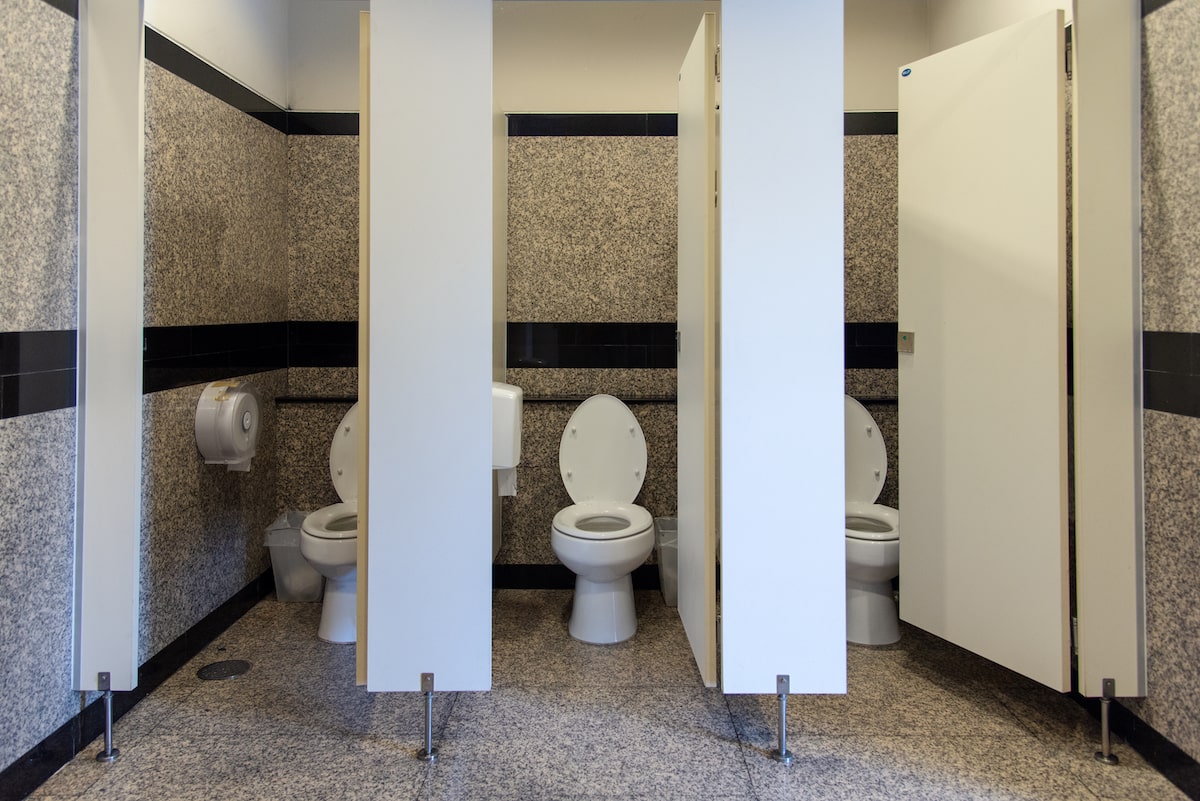<< Back
Is it Safe to Use a Public Bathroom During COVID-19?

May 21, 2020
As the country reopens, state by state, is there public trust in public restrooms?
Put it this way: At last check, New York’s subway system had one bathroom per 53,000 riders.
In Connecticut, public restrooms remain closed at most state parks. Elsewhere, will people change their hygiene habits when in public, whether at restaurants, shops and other local businesses?
A 2009 study cited by the Centers for Disease Control and Prevention found 69 percent of men, and 35 percent of women, don’t wash their hands after using the bathroom. In 2019, a YouGov survey of 24,000 Americans found that 40 percent do not always wash their hands with soap after using the bathroom.
Obviously, this is not an encouraging baseline. But COVID-19 has elevated handwashing to a potentially life-saving act. Let’s assume we’re all vigilant hand-washers now. How do we ensure our safety in a public restroom?
Local businesses are scrambling to limit traffic, maintain social distancing whenever possible and encourage hand-washing while confronting two problematic features of the modern public restroom: the lidless toilet and the forced-air hand dryer.
Researchers in Wuhan, China, where COVID-19 originated last year, found that even though hospitals were able to prevent the spread of the virus beyond a patient’s room, a high concentration of viral particles remained in air samples from patient toilets. Droplet of SARS-CoV-2, which causes COVID-19, can remain airborne for up to three hours. Flushing the toilet, then, whisks viral particles into the air. A lid can help contain those particles.
The urinal, a male convenience since 1866, is more challenging. Expect a new system, in larger public restrooms, that reduces by half the number of available urinals and toilet stalls. Eventually, all urinals will likely have larger dividers. Also expect more touchless urinals and toilets, eliminating the manual flush, and more frequent restroom cleaning and sanitizing.
Businesses with multiple-sink restrooms will also shut down some sinks in an effort to maintain social distancing.
What if you’re just visiting the restroom to wash your hands? Do not use the hot-air hand dryer!
Researchers at the University of Connecticut and Quinnipiac University in 2018 confirmed suspicions that these hand dryers inhale bacteria from the air and deposit them on you freshly washed hands. Petri dishes exposed to bathroom air for two minutes, hand dryers off, grew no more than one colony of bacteria. Petri dishes exposed to hot hand-dryer air for 30 seconds grew up to 254 colonies of bacteria.
So look for touchless paper-towel dispensers. On your way out, after drying your hands, use a fresh paper towel to open the restroom door. And do us all a favor: Don’t release the paper towel, allowing to fall to the floor, after opening the door. Take it with you and drop it in the nearest garbage container.
Don’t get hysterical about going to a public restroom. Get a mask.
Public restrooms are confined high-traffic spaces that no doubt will contribute to the transmission of coronavirus. But outfitted with a sink, hot water and an automatic soap dispenser, they will also contribute to its prevention.
Proceed with caution. Or, note to self, always use the bathroom before you leave home.